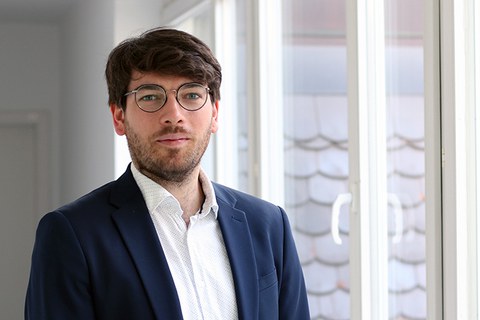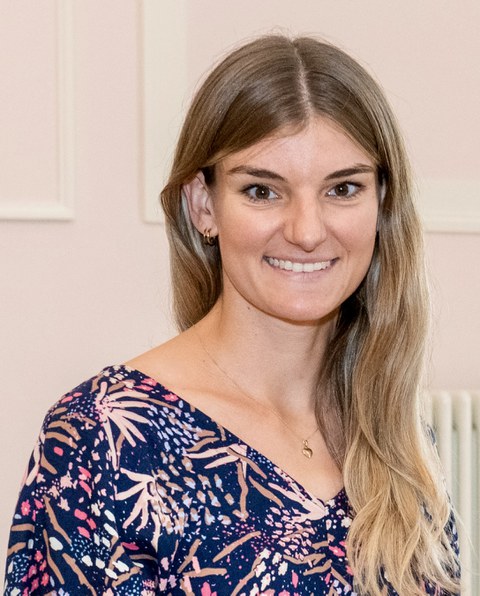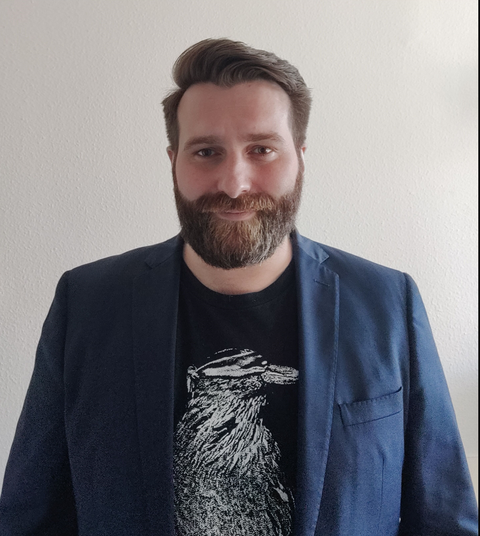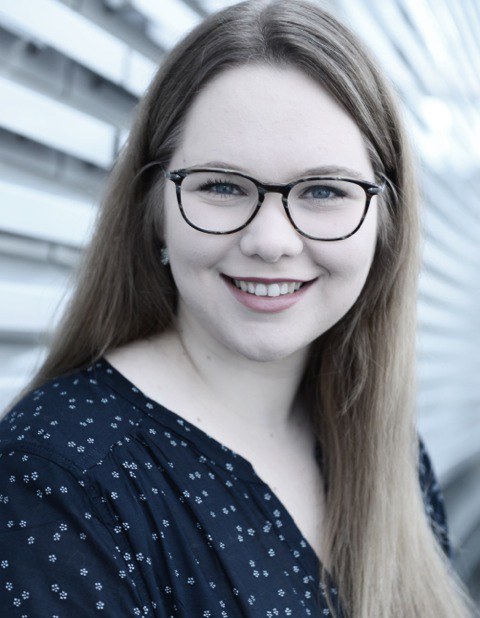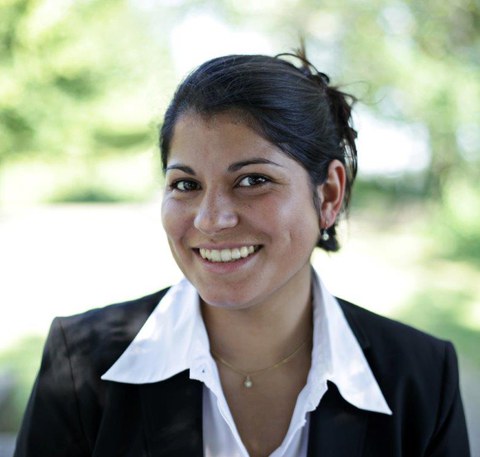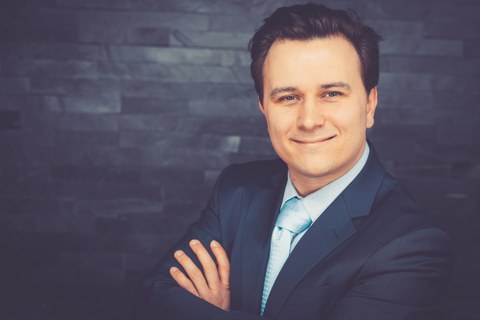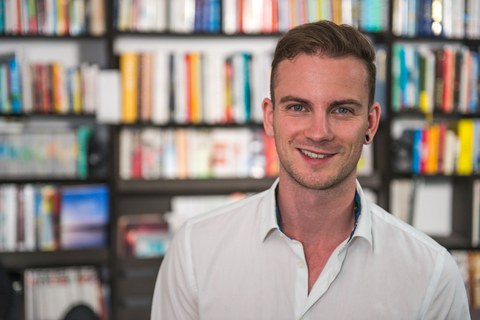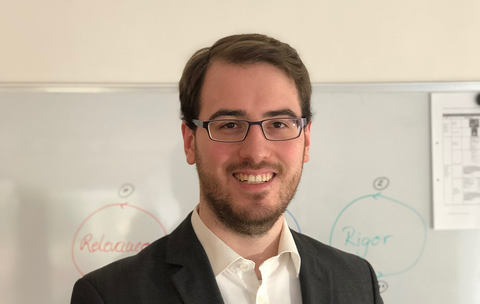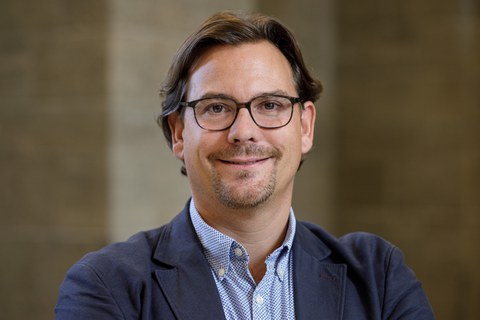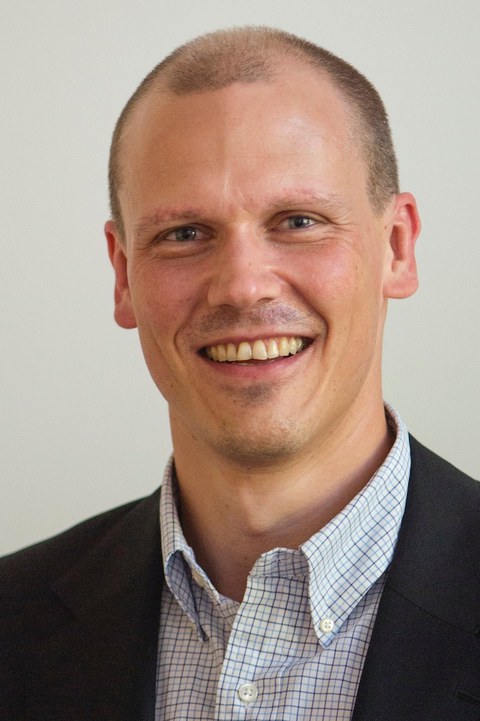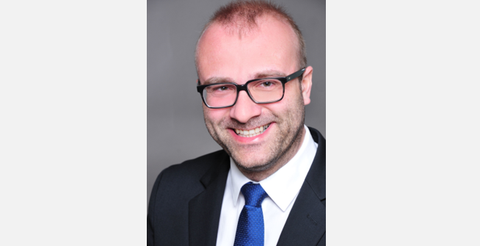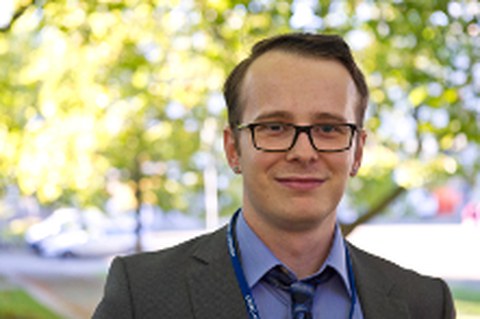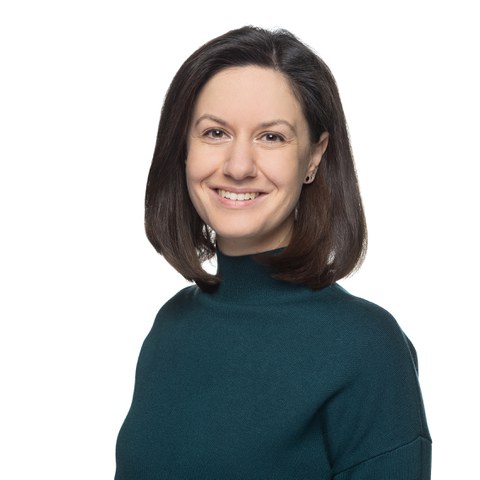New at the Faculty (Archive)
Table of contents
2022
Assistant Professor Valentin Lindlacher
Valentin Lindlacher will take up his position as Assistant Professor in International Economic Policy at the Faculty on 01.10.2022. He is moving from the ifo Institute in Munich to TU Dresden. He completed his doctorate at LMU Munich in summer 2022.
1) For me, being an assistant professor means ...
.... an excellent environment to pursue my own research agenda.
2) I would like to convey to students that ...
... every question is exciting as long as it can be answered causally.
3) My most exciting research project so far has been about ...
.... changes to polling stations in Munich and how these influence voting behavior.
4) Current research topics I am working on are ...
.... further questions about voting behavior and also how the Internet affects developing countries (especially in sub-Saharan Africa), whereby I am concerned not only with economic growth but also with questions of migration and social participation.
Assistant Professor Karoline Glaser
Karoline Glaser is an Assistant Professor in Management Analytics, since 01.09.2022. Until her move to Dresden, she worked as a Research Associate at the Chair of Enterprise Systems, where she completed her doctorate at the end of August 2022.
1) My first time at TU Dresden and the faculty was ...
... exciting - and still is. I took up the Junior Professorship in the middle of the lecture-free period, so my first time at the faculty was rather quiet. However, I was happy about that, as my move from Mannheim to Dresden was more than seamless, giving me time to get my bearings. So I'm still in the middle of the "settling in" phase. I'm happy about every encounter I've had at the faculty, where I've received a really warm welcome without exception.
2) For me, being an assistant professor means ....
... no time for boredom, responsibility as well as an honor and recognition. For me, Junior Professorship is associated with responsibility in two ways. Firstly, with even more freedom, I take on the main responsibility for my research projects and my further academic path. Secondly, the responsibility towards students to successfully teach relevant topics (and for me this also includes relevant and fundamental topics for research) is growing.
3) I want to convey to students that ...
... research is fun! Unfortunately, I sometimes have the feeling that some students see scientific work as an unpleasant duty and want to turn their backs on the academic world after completing their studies. I think that's a shame and I would be happy to help change this. I would like to motivate and support students to develop and pursue their own research ideas. In this way, I hope to give students an eye for exciting questions, how to deal with complex problems and how to find a solution.
4) What particularly excites me about my research projects...
... the fact that they are driven by real problems from companies. My research projects are mainly in the area of software development in large companies. Due to constant technological developments, new challenges are constantly arising in this area that are exciting to investigate. When collecting data, I am often in direct contact with employees, which gives me a comprehensive insight into their day-to-day work. It is an exciting challenge to arrive at scientifically relevant results on this basis.
Dr. Maximilian Happach
The Chair of Energy Economics has had a postdoc since June 2022. In this interview, Maximilian Happach talks about his career to date and his interests in research and teaching.
1) What has your academic career been like so far?
After my Bachelor's degree in International Business Administration and the European Master's degree in System Dynamics, I did my doctorate in the Cluster of Excellence "Simulation Technology" at the University of Stuttgart. I was able to write my dissertation entitled "System Dynamics Models as an Extension of Investment Calculation Methods for Electricity Storage in the German Electricity Market" at the Institute for Diversity Studies in Engineering and completed it with distinction in the midst of the pandemic. The work there was a very enjoyable experience, as I was able to work as an economist with students from the technical sciences on complex socio-technical issues. I can now deepen this experience further.
2) Why did you decide to move to Dresden?
I have known Professor Möst for many years through events organized by the Society for Energy Science and Energy Policy, at which staff and students from the Chair regularly present current topics and results from projects. Last year, Professor Möst presented a job advertisement that appealed to me directly and I applied for it. With the new position, I can be part of a team that delivers excellent scientific output and acquires many projects, I can work on a very exciting hydrogen project and also help shape the team's teaching. I also think that the TUD Dresden University of Technology, as a University of Excellence, creates a wonderful framework in which chairs and Institutes can work together across disciplines, forge international links and attract highly motivated students. These are simply very good framework conditions for science and teaching.
3) What are your research interests?
My research to date has been concerned with policy analysis in the energy industry and studies on decision-making in dynamic and complex systems. I have used system dynamics for this. In the energy industry, I am particularly motivated by renewable energies and how the transformation to a climate-neutral energy system is made possible. In terms of methodology, I would now like to focus on the optimization models used at the chair and find synergies with System Dynamics.
4) And what topics are you interested in teaching?
Our students are the decision-makers of tomorrow and my aim is to equip them with tools and knowledge so that they can make better decisions. Especially in a subject as lively as energy management, teaching needs to be constantly adapted and I am fascinated by how teaching can be further developed didactically. The shock of the pandemic in particular has posed major challenges to established teaching methods. The result is digitalized lectures and Zoom meetings. With the return to face-to-face events, we can now combine the digitalized lectures and the previous didactic methods and thus convey complex issues in a practical way and offer them in a student-oriented manner. I am excited and look forward to the feedback from the students.
Lisa-Marie Langesee
Lisa-Marie Langesee has been a Research Associate and doctoral student at the Chair of Business Information Systems, in particular Information Management, since October 2021. During her Master's degree in Business Information Systems, Ms. Langesee already worked as an e-tutor and FHK at the Chair for three semesters. Recently, Lisa-Marie Langesee has also been supporting the faculty as a member of the Study Commission and as part of the Digital Teaching team in the School of Civil and Environmental Engineering.
In our interview, Ms Langesee tells us what she does at the Chair of Information Management and what tasks await her in the Virtual Teaching team.
1) How did you come to work at the Chair of Information Management instead of going into practice after your studies?
I worked as a Student Assistant at the Chair for three semesters during my Master's degree and built up my interest in research activities. The staff at the Chair gave me a very good and comprehensive insight into the everyday life of a Research Associate early on, which only increased my enthusiasm for this multi-perspective work. During my Master's degree, I also specialized in information management, as I found the combination of Business Information Systems with pedagogical aspects very innovative and exciting and still do. I then contacted Prof. Schoop before starting my Master's thesis to let him know that I was interested in doing a doctorate and working at the Chair. This was received very positively by him and so I was able to start shortly after submitting my Master's thesis.
2) How did you manage the transition from studying to working at the Chair?
I didn't find the change from my studies to my job too difficult. I already knew all my colleagues and received a very warm welcome. The fact that I was involved in various courses right from the start and also organized and moderated some of them meant that I quickly became familiar with the "normal" semester routine and everything that goes with it. Although this initial phase was of course not stress-free, I always had the support of my colleagues. And on the days when I dedicate myself to my research, it doesn't feel too different from being a student :).
3) What are your tasks at the Chair of Information Management and what do you particularly enjoy about them?
My teaching activities at the Chair include teaching courses, supervising seminar papers and theses, correcting exams, exam supervision and consultations. However, my employment as a Research Associate is also associated with academic research activities. This involves writing scientific publications to be presented at conferences or published in journals. In addition to research and teaching, academic self-administration is also an aspect of the job. This includes, for example, my involvement in the Study Commission, which I have been a member of since June 2022 for the Bachelor's degree in Business Administration and Economics.
It's not easy to say what I particularly enjoy, as I find the combination of student support and research very varied, never boring and always challenging. It is precisely this combination and the flexibility that make the job as a whole just right for me.
4) In addition to your work at the Chair, have you recently started supporting the Faculty by not only being a member of the Study Commission but also of the Virtual Teaching team of the School of Civil and Environmental Engineering? What is this departmental project about?
Yes, since 06/2022 I have been the representative of the Faculty of Business Administration and Economics in the "Digital Teaching" team of the School of Civil and Environmental Engineering. This team consists of one representative from each of the faculties in the School of Civil and Environmental Engineering and one representative from ZiLL. The core tasks of this team are to act as a permanent contact and change agent for digital and hybrid teaching in the School of Civil and Environmental Engineering. By involving representatives from each faculty, faculty-specific requirements can also be taken into account and lecturers can be supported by a competent team with experience in the field of e-learning. By the end of this year, the team will present an area concept for digital teaching in the School of Civil and Environmental Engineering to the Vice-Rector Academic Affairs, which will serve, among other things, to implement comprehensive offers for the subject-related promotion of digital teaching. We want to establish ourselves as a central point of contact for questions, challenges and requests relating to digital teaching from students and lecturers. A website for our team is currently under construction, but you can already reach us at . The "Digital Teaching" team operates according to the service concept and is geared towards the goals and guiding principles of a 21st century university.
Assistant Professor Samanthi Dijkstra-Silva
Since 01.04.2022 Samanthi Dijkstra-Silvahas has been an assistant professor in Sustainability Assessment and Policy at the Faculty of Business Administration and Economics. She joins the Faculty of Business Administration at TU Dresden from the Institute of Technology Assessment and Systems Analysis (ITAS) at the Karlsruhe Institute of Technology (KIT), where she researched sustainability assessment and transformation as a Research Associate. At the same time, she completed her doctorate at the Center for Sustainability Management at Leuphana University in Lüneburg on 'Managing, measuring and assessing sustainability performance'.
Her research focuses on corporate sustainability, sustainability management, sustainability performance, measurement and assessment. In current research projects, she focuses on sustainability impact, the positive contribution to sustainable development (keyword: handprint) and examines sustainability assessment from a behavioral science perspective.
My first time at TU Dresden and the faculty was...
characterized by upheaval and movement. For me, it is not only the start of my Junior Professorship at a new institution, but also the return from parental leave. During the quieter phases of parental leave, I was able to focus well on research, while teaching and administrative tasks were given less attention during this time. Now I'm looking forward to developing new, innovative courses and expanding my research profile at TU Dresden. Having worked for a long time at the smaller, rather young and strongly sustainability-oriented Leuphana University, I am struck by the character of TU Dresden as a long-established university with a technical and scientific focus. I can continue the interdisciplinary cooperation that I am familiar with from Leuphana at TU Dresden, as I am a member of both the Faculty of Business and Economics and the Faculty of Environment and can open my courses to students from many different subject backgrounds.
For me, being am assistant professor means ...
three things above all: independence, enjoyment and being a role model. Independence in research, but also freedom in the selection of courses allows me to set priorities that I consider particularly important. One specific example that I will be investigating in more detail is the influence that the minimalist lifestyle can have on sustainable consumption and companies. I am looking forward to the tasks of the Junior Professorship, because this has always been my goal. And as a woman of a different skin color, I am particularly proud to be on this path - I am grateful if I can be a beacon for others.
I want to convey to the students that ...
teaching is a collaboration and an exchange. I want my students to realize that they have the opportunity to initiate and drive change and transformation in the roles they will later perform. In particular, I want to give the Fridays for Future generation, which is full of desire for change and potential, access to tools and arguments that they can use to bring about change towards sustainable development. In terms of content, I want to share my passion topics, for example positive contributions to sustainable development such as the handprint, and also be open to what the students need at the moment. For example, in a previous course, it became clear that the students needed to deal with specific individual options for sustainability and then we used a session to look at their own consumer behavior and options for change.
What I would like to drive forward in the next few years ...
feels like quite a lot - it will only be possible in collaboration with my team and network. In the field of corporate sustainability and sustainability management, I focus on how sustainability assessment can contribute to a transformation towards a sustainable world. Specifically, research and teaching projects are planned on the topics of impact, minimalism and the interaction between sustainability assessment and individuals. A concrete look at the area of impact, where I am working with Alexa Böckel on understanding impact in the context of incubation and innovation programs and start-ups. Central to all topics is that sustainable action aims to secure our human (survival) on this planet. To be successful, a sustainable mindset must therefore continue to move out of the niche and into the mainstream of science and practice.
What unites my most exciting research projects ...
is to look at an object of investigation through different lenses and thus discover new facets and aspects. Using a new theory or a behavioral science perspective to investigate sustainability assessment and discover new facets - for example, why it is so difficult to find examples for measuring positive contributions of products or companies to sustainable development. One sub-area of my research is precisely the question: what exactly are positive contributions to sustainable development? I looked at the handprint, which is the counterpart to the footprint and deals with how we can contribute creatively and creatively to sustainable development. The footprint primarily measures the negative effects of our lives, such as emissions, and how we can reduce them. Until now, we have often thought of sustainable development in terms of reducing the negative, but from a business perspective, it is much more exciting to see what positive contribution we can make through an innovative product or a new service.
Assisstant Professor TristanBecker
Since 01.01.2022, Tristan Becker has held the newly created Junior Professorship for Business Administration, in particular Management Science at the Faculty. Tristan Becker comes to Dresden from RWTH Aachen University, where he has been a postdoctoral researcher at the Chair of Operations Management since 2019. Tristan Becker completed his doctorate on "Innovative Optimization Methods for Location and Personnel Planning: Models and Algorithms with Applications in Production and Service" at Ruhr University Bochum in 2019 with top marks.
My first time at TU Dresden and the faculty was...
very pleasant thanks to the comprehensive support from the Dean's Office and my secretary Ms. Krug. Although I have only been here for a few weeks, I feel that I have been very well received at the faculty and I am looking forward to research collaborations and my teaching in the summer semester.
For me, being an assistant professor means ...
teaching and researching independently and representing the field of Management Science at the faculty. I particularly appreciate the freedom to set my own research agenda. In addition, I can independently develop innovative teaching with direct interfaces to my research.
I would like to convey to students that ...
Management Science methods and especially Operations Research can help us to solve a variety of business problems. However, in order to select a suitable method, you also need to know the theoretical foundations. For the application of quantitative methods such as mathematical optimization, however, it is also important to be able to implement them and, at least for small case studies, to implement them yourself in a programming language. It is therefore important to me that, in addition to the theory, all students have the opportunity to implement quantitative methods "hands-on" with computer support.
As a Junior Professor, you don't have your own team and are more of a lone wolf,...
and of course I can't pursue all my research ideas on my own. However, I believe that some of these research ideas would be excellent for use in dissertation projects. That's why my goal is to acquire third-party funding. In this way, I hope to offer new doctoral students the opportunity to work on exciting research questions in the field of management science at the Faculty.
My most exciting research projects so far have been...
supply chains of renewable fuels in the Cluster of Excellence "The Fuel Science Center". We developed new mathematical optimization models to analyze the structure of future supply chains of renewable fuels in Europe. We took into account limited availability of renewable resources, different production paths and the future demand for fuels in order to identify transformation paths to climate neutrality in the transportation sector. In addition to the costs of future supply chains, we also considered other criteria such as social acceptance. Research at the Fuel Science Center is exciting due to its highly interdisciplinary nature, as the project brings together researchers from all areas.
Current research topics that I am working on are ...
The consideration of uncertainties in the development of rolling shift planning models. In a rolling shift schedule, each employee works the same schedule, which is repeated after a certain period of time. Rolling shift schedules are used in a large number of companies. In the past, however, uncertainties in the development of rolling shift schedules were mostly neglected. The uncertainties that companies face in personnel planning have been exacerbated by the COVID-19 pandemic. For example, if employees are unavailable at short notice, this means that the original plan is no longer valid. This can result in high costs or many last-minute changes to the shift plans of individual employees.
Dr. Sebastian Oelrich
We welcome Dr. Sebastian Oelrich as a new Research Associate (Post-Doc) at the Faculty. He completed his doctorate in accounting on the subject of whistleblowing and white-collar crime at Otto von Guericke University Magdeburg. Parts of his dissertation, in which he deals with incentive systems and motivation of whistleblowers, have already been published in journals such as Business Research, Business Ethics, the Environment & Responsibility and Betriebswirtschaftliche Forschung und Praxis. He is currently working further on whistleblowing in auditing companies. A practical article has just been published in co-authorship in WPg - Die Wirtschaftsprüfung and current projects have already been awarded research funding prizes from EURAM and GfeW.
We asked Dr. Oelrich a few questions to mark the start of his work at the faculty:
What has your academic career been like so far?
I studied Business Economics at Martin Luther University Halle-Wittenberg (MLU) for my Bachelor's degree and International Area Studies for my Master's degree. The Master's helped me a lot to better understand other approaches, theories and disciplines and still shapes my research today. Building on this, I attended a Master's in Business Law at MLU and SWUPL in Chongqing, China, and focused on white-collar crime and criminal law.
For my PhD, I then moved to Magdeburg, where I completed my dissertation on "Whistleblowing as a means to detect and prevent fraud: Four essays from different behavioral and economic perspectives" with Summa Cum Laude in 2021. I also conducted research at MLU in a third-party funded project on corporate culture and corruption. I am now starting my habilitation in Dresden and am looking forward to an exciting time.
Why did you decide to move to Dresden?
It was actually the job advertisement that appealed to me due to its interdisciplinary character and the fact that it involved several Chairs at the Faculty. I saw direct points of contact in research with the Chairs of Management Accounting/Controlling, Auditing and Taxation, Environmental Management and Organization, among others. Of course, the framework conditions were also important: TU Dresden as a research-intensive university and Dresden as a simply beautiful city!
What are your research interests?
In my research, I am particularly interested in issues relating to white-collar crime and ethics and therefore often find myself in literature and discourses outside the traditional accounting field - which is why I really appreciate the interdisciplinary links at the faculty! With the help of experimental approaches and surveys, I try to better understand pro-social, but also corrupt, immoral or illegal behavior of the stakeholders involved in order to develop effective interventions. I am increasingly interested in aspects of social and corporate norms, as well as stakeholders of (social) control and supervision, especially auditing and mass media. Of course, I am also enthusiastic about more "classic" accounting topics, and I find the development of non-financial indicators, often referred to as CSR or sustainability reporting, particularly exciting.
And what topics are you interested in teaching?
I will probably teach internal corporate accounting and controlling in particular. I will also focus on the links to topics such as white-collar crime and fraud risk, as well as business ethics and sustainability. This is where I see the ever-growing importance for practice. In summer 2022, for example, I will be teaching a course on "Fraud and Ethics in Accounting Practice" as a visiting professor at Aarhus University in Denmark
2021
Prof. Dr. Blagoy Blagoev
Prof. Dr. Blagoy Blagoevhas held the Chair of Business Administration, in particular Organization,since 01.06.2021. The Chair was established in addition to the existing professorship for Prof. Dr. Schirmer and thus strengthens the management area of the faculty.Prof. Dr. Blagoev is moving to Dresden from Leuphana University Lüneburg, where he worked as an academic advisor at the Institute for Management and Organization. Blagoy Blagoev completed his doctorate in 2015 at the FU Berlin in the DFG-funded Research Training Group "Pathways of Organizational Processes" with a thesis on the persistence dynamics of organizational time regimes.
I would like to convey to the students ...
that organization is an important, fascinating and multifaceted subject within business administration, especially because it opens up exciting connections to neighboring disciplines in the social sciences and beyond. On the one hand, dealing with organizational theory issues prepares students for consulting and management activities in companies. On the other hand, it also promotes critical thinking and reflexivity with regard to the social and ecological implications of business management activities. Organizations, especially global companies, bear a decisive (shared) responsibility for the major social challenges of our time, such as climate change, global inequality and digitalization. Organizations today must therefore be conceived, designed and managed in such a way that they can respond to their complex challenges in a meaningful way. More than ever, this means taking sustainability, ethics and innovation into account alongside profitability. I would like to explain how scope for action can be created in light of this. It is therefore a central concern of mine to awaken an interest in organizational research in all its complexity, diversity of perspectives and topicality among my students. I also think it is important to encourage students' organizational imagination. This means teaching them how to recognize organizational relationships that are not immediately visible and how to critically question organizational structures and practices that are taken for granted. This is precisely what enables students to develop informed alternatives to traditional organizational concepts in science and practice.
When setting up my chair team, it is important to me ...
to create a collegial, collaborative and creative working environment that offers all team members the necessary freedom to develop their skills and interests in order to best represent the subject of organization within the university and to help shape international research discourse. I understand collegiality to mean that important decisions are made in a participatory and inclusive manner by involving as many diverse voices as possible. This naturally requires the inclusion of a wide range of life experiences and backgrounds. It also creates an open working environment in which people meet as equals and each individual is valued. By collaboration, I mean a fundamental orientation towards cooperation in research and teaching, both within the chair team and in the faculty, the university and beyond. Many of my research projects take place in international and sometimes interdisciplinary collaborations and I am very much looking forward to the numerous opportunities for collaboration with my new colleagues at TU Dresden. In addition, creativity - the endeavor to develop novel, original and useful ideas in research and teaching - is very important to me. My goal is therefore to build a team of open, curious and intrinsically motivated people who enjoy academic discourse and research into contemporary problems, practices and forms of organization. Creativity always includes a critical attitude, i.e. the courage to question existing knowledge, dare to try something new and explore unknown research terrain. I would be delighted if the chair activities I have planned create an open, creative thinking space for developing ideas and exchanging knowledge.
My most exciting research project so far has been about ...
This is really difficult to answer, as I am very interested in all my projects, both completed and ongoing. Basically, I would say that I am fascinated by unusual, contradictory and puzzling phenomena in the world of organization and work, which I research primarily using qualitative methods. The methods can be just as diverse as the phenomena and research contexts. I am thinking, for example, of my case study-based research on excessive working hours, a widespread and above all persistent phenomenon despite its well-known negative consequences for people, organizations, the economy and society. Or the phenomenon of co-working spaces, which I have ethnographically investigated, i.e. the regular gathering of freelancers and self-employed people in the very open-plan office-like structures that they actually wanted to escape through their choice of profession, but in which they now increasingly work and for which they also pay. In a different project, I have historically investigated the contradictory character of history in organizations: In the case of the long-established British Museum, I was able to show how history can both promote and prevent the introduction of new technologies. The spectrum of phenomena that seem exciting to me is therefore broad. What they all have in common, however, is that they call into question our current knowledge and understanding of organization and management, thus enabling theory formation and development. What these projects certainly also have in common is their theoretical influence through my interest in questions of temporality. The latter open up exciting perspectives on important and current topics in organizational research, especially due to their broad and deep theorization and transdisciplinarity.
Current research topics that I am working on are ...
Temporality, sustainability and new forms of organizing. I am currently working on two conceptual contributions on the topic of temporality. One of them deals with the constitution of proper time in organizations, i.e. the question of how idiosyncratic time regimes, decoupled from the time structures of society, emerge in organizations. The other contribution theorizes the influence of history on current organizational events by analysing patterns of interdependence between routines and roles. In the field of sustainability, I am fascinated by the question of how organizations that have historically been primarily economically oriented towards the short term can learn to act ecologically in the long term in order to implement their ambitious sustainability strategies. I investigate this question empirically using a case study of a large German car manufacturer. Here too, temporality, in particular the tension between short and long-term time horizons, plays a central role. In addition, I am working on two projects on new forms of organizing, one dealing with the formally hierarchy-free organizational form of two Copenhagen start-ups and the other with openness as an innovative organizational principle of Research Associates. I would like to expand this research portfolio at TU Dresden to include two topics that are currently of particular interest to me: the influence of emergent technologies such as AI on organizations and the world of work on the one hand, and innovation in new forms of cooperation on the other. For both topics, TU Dresden offers numerous opportunities for interdisciplinary collaboration, which I am very much looking forward to.
2020
Prof. Dr. Alfred Benedikt Brendel
On 01.10.2020, Prof. Dr. Alfred Benedikt Brendel took up his position as Chair of Business Information Systems, in particular Intelligent Services and Systems, at the Faculty. He obtained his Bachelor's and Master's degrees in Business Information Systems at the University of Göttingen, where he also completed his doctorate in 2017. Following his doctorate, he led two research groups on the topics of "Smart Mobility" and "Digital Health" at the Chair of Information Management at the University of Göttingen. He is now taking up his first Chair in Dresden.
For me, becoming a professor at TU Dresden means ...
taking on responsibility and being able to shape teaching and research independently and freely. I am looking forward to working on exciting projects together with students, doctoral candidates and postdocs and being able to set the focus myself. The fact that TU Dresden is one of the Universities of Excellence is an added bonus. My family and I are looking forward to living in Dresden, a very beautiful city that we really liked from the start.
I would like to convey to the students, ....
that you can't start researching early enough. Publishable research can already be achieved at the end of the Bachelor's degree or at the beginning of the Master's degree. It is important to me to make students enjoy research-oriented teaching and to encourage them to want to make a contribution to their own subject. I really like it when students are courageous, have confidence in themselves and tackle supposedly difficult tasks with self-assurance.
When building up my teaching team, it is important to me ...
that I manage to put together a balanced team of young, motivated doctoral students and experienced postdocs. I would also like to support external doctoral candidates who are working in industry on their path to a doctorate. A positive side effect of external doctorates is the resulting practical contacts, which in turn also benefit the students.
My most exciting research project to date involved ....
a large-scale field study with a car-sharing company, which we carried out with the aim of optimizing the distribution of the vehicle fleet. The aim was to reduce vehicle downtimes and serve more customers with the same fleet size. We asked ourselves how we could get customers to return a borrowed car to where it makes the most sense in terms of capacity utilization. As part of the practical cooperation, we developed an innovative pricing model and also offered customers discounts if they re-park vehicles in a targeted manner. The great thing about the project was being able to see directly how our developments were implemented in practice.
Current research topics that I am working on are, ....
mobility, but increasingly also health and digitalization in the workplace. Among other things, I am currently investigating how the motivation of employees on crowdworking platforms can be increased. I am also working on the use of chatbots in industrial contexts and the implementation of mobile applications to improve healthcare in developing countries.
More information about Prof. Brendel and his team on the chair's website
Prof. Dr. Christian Leßmann
Prof. Dr. Christian Leßmanntook over the Chair of Economics, in particular International Economics,on 1.10.2020. He is a research professor at the ifo Institute - Leibniz Institute for Economic Research at the University of Munich and a CESifo Research Network Fellow. Previously, Christian Leßmann was Professor of Economics at the Technical University of Braunschweig and the Friedrich-Alexander-University Erlangen-Nuremberg. He received his doctorate and habilitation from the TUD Dresden University of Technology and was a doctoral student at the ifo Institute Dresden branch. His research has been awarded the Wolfgang Ritter Prize and the Peggy and Richard Musgrave Prize, among others.
For me, becoming a professor at TU Dresden means ...
that I can develop myself further. I'm looking forward to research colloquia and seminars where we can discuss current research. I'm looking forward to designing new courses. And I'm looking forward to the university as a whole, which is a full university compared to TU Braunschweig. This means that smaller specialist groups are also represented and shape the culture of the university. With this in mind, I am also very excited about the new university management.
I would like to convey to the students, ....
that scientific thinking is critical thinking. And you need that in research just as much as in business or in life in general. In today's world, it is important to acquire skills that enable you to distinguish between nonsense and sensible arguments. If the students take this with them from their studies, then we have achieved a lot.
When building up my team of professors, it is important to me ...
that the members of staff are passionate about their subject. Of course you need expertise and methodological knowledge, but I simply have to identify strongly with my research personally so that something exciting comes out of it. You can't tell that from certificates and grades alone. That's why I'm looking forward to the applications.
My most exciting research project so far has been about ....
the use of satellite data to measure regional economic development. In developing countries, we simply have little data and when we do, it is of poor quality. And the more small-scale you want to investigate a research question, the greater the data problem. Today, there are numerous approaches to deriving the missing information from satellite images at night or during the day. For example, night-time light emissions are a good indicator of economic development, just as vegetation indicators from daylight images allow a statement to be made about the harvest. Worldwide, more than one in four people are still employed in agriculture. Such data is extremely useful information.
Current research topics that I am working on are, ....
at the interface between development economics and finance. In a real long-term project, I started a few years ago with colleagues to code all administrative reforms in all countries of the world and transfer them to a geographical information system. This allows us to see the impact of decentralization and centralization measures on regional development. Although the World Bank and other international organizations invest a lot in decentralization measures in partner countries, it is not so clear whether the long-term effects are positive or negative. If, for example, two provinces split up, the new regions may become more homogeneous in themselves - or not. If the layout of the new regions is unfavorable, such a reform can also be detrimental. We hope that we will soon be able to make clear policy recommendations.
More information on Prof. Dr. Leßmann and his team can be found on the chair's website.
Prof. Dr. MartinWiener
Prof. Dr. Martin Wiener has been working at the faculty since 01.02.2020. The holder of the Chair of Business Information Systems, in particular Business Engineering, studied Business Information Systems at the University of Erlangen-Nuremberg, where he also completed his doctorate and habilitation. During his time as an academic advisor and habilitation candidate, Martin Wiener undertook numerous research stays abroad, including at the University of Canterbury in Christchurch (New Zealand), the University of Central Florida (USA) and the Stockholm School of Economics (Sweden). In 2015, he became an Associate Professor at Bentley University in Waltham/Boston (USA), where he worked in the Information & Process Management (IPM) Department until his move to TU Dresden.
The first few months at TU Dresden and the faculty were extraordinary for me ....
extraordinary - especially due to the corona pandemic - and at the same time very enjoyable. I received a very warm welcome and feel very much at home at the faculty. In my opinion, TU Dresden and the Faculty of Business Administration and Economics combine the advantages of a university of excellence with an almost family atmosphere in a unique way. In this context, I would particularly like to thank Susanne Strahringer, the Faculty Administrator, Uta Schwarz and Marco Gießmann, as well as my secretary, Andrea Thiele, for their active support during my onboarding.
For me, being a professor means ...
a great privilege! On the one hand, I can work intensively on topics that interest me and that I believe will have a profound impact on our society and economy. On the other hand, my job allows me to work intensively with young people - be they doctoral students or undergraduates - to encourage them and help them realize their full potential!
I would like to convey to students, ....
that science is not just "abstract theory", but can also provide important practical implications, e.g. by reducing complex relationships to the essentials and thus making them easier to 'digest' and providing managers with recommendations for action. Kurt Lewin once summarized this as follows: "There is nothing more practical than a good theory."
I also want to convey that scientific work - i.e. the in-depth, systematic processing of a current topic - can also be a lot of fun!
When setting up my chair team ....
I would like to differentiate between the interpersonal team level and the overarching chair level. At the team level , the development of shared values is very important to me. In particular, this includes treating each other well, professionalism and reliability, as well as a certain amount of ambition. Not only myself, but also my team should set themselves high standards, not be satisfied straight away and critically question results. It is also very important to me that we have fun as a team, because if everyone enjoys their work, motivation increases and something good usually comes out of it in the end.
At chair level, my goal is for us as a team to manage the balancing act between scientific excellence at an international level and practical relevance - including support for the regional economy. The "Swedish model", which I got to know and appreciate during my time at the Stockholm School of Economics, is my role model here!
My most exciting research projects to date have...
always involved socially relevant topics. For example, we are currently conducting a research project in cooperation with Saarland University on the influence of algorithmic transparency on the acceptance and use of the Corona-Warn-App. We are using online experiments to investigate how different levels of transparency affect the willingness of citizens to download and use the app. In general, however, I would like to add that I find all my research projects exciting! J
The current research topics I am working on are ...
on the one hand, the so-called "algorithmic management", i.e. the management of workers with the help of algorithms. In extreme cases - such as in the case of Uber - this can happen without any human interaction. Algorithmic management (AM) is a very interdisciplinary topic that also raises many ethical questions. My team and I are currently focusing on three main questions:
1) How do people react to the use of AM - both in a negative and positive sense?
2) What role does the transparency of algorithms play in the acceptance and successful use of AM applications?
3) What role do gamification strategies and elements play in this context?
Secondly, together with my team, I am investigating the design of data-driven business models - with a particular focus on the manufacturing industry, especially German mechanical and plant engineering. Specific topics include the design of "smart machines" and product-service systems as well as the introduction of purely service-based business models in which machines are no longer sold but offered exclusively as a service.
More information about Prof. Dr. Wiener and his team can be found on the chair's website.
Prof. Dr. Remmer Sassen
Prof. Dr. Remmer Sassen has held the Chair of Business Administration, in particular Environmental Management at IHI Zittau since 01.10.2020. Since October 2019, Remmer Sassen has held the Chair of Business Administration, in particular Sustainability Management and Corporate Environmental Economics at the faculty. Remmer Sassen is a second member of the Faculty of Business Administration and Economics and will continue to represent the Chair of Sustainability Management and Corporate Environmental Economics in the winter semester 2020/21 in parallel to his new tasks in Zittau.
My first year at TU Dresden and the Faculty was ...
great overall. But of course it was also a challenging year that brought some changes in my life. I was very well received at the faculty and feel very comfortable. The collaboration with the team and with Edeltraud Günther and UNU-FLORES worked very well right from the start.
For me, becoming a professor at TU Dresden means ...
that I have now achieved the career goal I have been working towards for a long time. Nevertheless, it is somehow also an intermediate step and a start towards many new topics and tasks. For me, being a professor also means that I can now pursue my thematic interests more freely than before. TU Dresden is of course a great university. In terms of content, there are many points of contact with other researchers here, and the fields of environmental and sustainability management are very well represented. There is actually no better location, here I can work at a university of excellence and at the same time in a beautiful region.
I would like to convey to the students ...
that it is worthwhile dealing with scientific issues independently. It would be great if the students could take a lot of content from my courses, especially for their future careers. I also think practical collaborations and practical lectures are very important so that students have opportunities to come into contact with representatives from the field at a low threshold.
When building up my teaching team, it is important to me ....
that I choose people who fit together and who complement each other in terms of content. A year ago, I joined an existing team as a chair representative. I think things are going very well here. At IHI Zittau, I will also be working in new areas. My two new colleagues will be working on biodiversity management, a new focus topic in Zittau, as part of their doctoral projects.
My most exciting research projects to date have been ...
sustainability at universities. This is a field that I have been working in for a long time and that will continue to drive me. One of the things that fascinates me about this topic is that it deals with our own form of organization, which is why every single university member has an opinion on it. This is very exciting and I can always learn something new in conversations.
Another current research topic that I am working on is ....
biodiversity management and therefore a subject area that has hardly been researched from a corporate perspective. This is a highly topical issue that is also regularly discussed in the media. Among other things, research is needed into how companies can be encouraged to protect biodiversity. Biodiversity is the basis of life for every single individual, but at company level it is often not a priority issue.
More information on Prof. Dr. Sassen and his team can be found on the IHI Zittau website and on the website of the Chair of Sustainability Management and Corporate Environmental Economics.
Assistant Professor Sebastian Störmer
Sebastian Störmer joined the faculty on 01.04.2020 as holder of the Junior Professorship for Business Administration, in particular Human Resource Management. Sebastian Störmer studied psychology at the University of Bremen from 2007-2010. This was followed by a Master's degree in Business Psychology at the University of Bremen. Sebastian Störmer successfully completed his doctorate on "Workforce Diversity and Organizational Inclusion: Implications for Overcoming the Fault Lines and Leveraging the Potential of Employee Diversity" at the Georg-August-University Göttingen in 2017 and then worked as an academic advisor at the Chair of Human Resource Management with a focus on China / Asia in Göttingen until his move to Dresden.
My first few months at TU Dresden and the faculty were ....
were extraordinary for me due to the circumstances with Corona. TU Dresden was in the middle of emergency operations when I arrived here. However, I communicated virtually and very intensively. I always received helpful feedback quickly when I had questions, especially from the Dean's Office and my secretary Ms. Hergert.
For me, being an assistant professor means ...
a step towards independence, which of course comes with more responsibility. For me, the Junior Professorship is an important intermediate stage and a big step on the way to becoming a Chair. It's a good feeling to be able to represent my own subject area even better to the outside world.
I want to convey to the students that ...
there is a lot to be gained from taking a theory-driven look at HR management topics. It is important to me that students understand that management approaches can be better implemented if theory-driven and empirical findings are also used to explain them. However, that doesn't mean that I don't value an exchange with practitioners. Practical contacts are definitely relevant and I also enjoy working with companies and associations. In summary, I would like to convey that a good mix of intuition, observation and a systematic approach is important in HR management.
As a Junior Professor, I don't have my own team and am more of a lone wolf.
which is why I find it very important to establish, maintain and expand networks. I enjoy working with other researchers and can draw on an existing network, which I would very much like to expand at TU Dresden.
My most exciting research projects to date have involved...
a large-scale study on expatriates with Fabian Froese (Göttingen) and Samuel Davies (Liverpool). We created a large data set to record the global working and living conditions of expatriates in 30 countries. Many exciting questions can be derived from the study, including innovation and knowledge transfer, expatriate retention and cultural intelligence.
Current research topics that I am working on are ...
in addition to expatriate management, research in the areas of diversity management and recruitment. I am also planning a survey with the students at TU Dresden on the topic of what makes an attractive employer as soon as this is possible again. I already have results on this from Göttingen and a comparison with student data from TU Dresden would certainly be interesting.
More information about Junior Professorship Dr. Störmer on the Junior Professorship website.
Dr. Martina Pieperhoff
Dr. Martina Pieperhoff has been working at the faculty since 01.04.2020. She came to Dresden from Vienna with the aim of completing her habilitation and is now working as a Research Associate at the Chair of Entrepreneurship and Innovation. Due to Corona, Ms. Pieperhoff has had little opportunity to network at the Faculty. We would therefore like to take this opportunity to introduce the young researcher in more detail.
What has your academic career been like so far?
I first studied sociology in Munich and Salzburg and then completed my doctorate at WU Vienna. I completed my cumulative dissertation on "Reciprocity in interorganizational exchange relationships - a concept to explain coordinated behavior?" with distinction in April 2019. The doctoral position in Vienna was very interdisciplinary and located at the interface of social sciences and Business Administration and Economics. Now, with the habilitation position in Dresden, a new stage is beginning that I am very much looking forward to.
Why did you decide to move to Dresden?
I first came across the job advertisement, which was clearly focused on Business Administration and Economics. At a conference at WU Vienna, I then had the opportunity to get to know the team at the Chair of Entrepreneurship and Innovation better. The chair was open to more interdisciplinary collaboration and we discovered common research interests.
Regardless of the fit between my research interests and those of the Chair, I deliberately wanted to move to another university for the postdoc phase. The University of Excellence TU Dresden seems to me to be a good address for a change, as the desire to compete internationally is also evident here.
What are your research interests?
In a nutshell, I am interested in everything that happens between organizations. I am interested in inter-organizational exchange and network relationships, cooperation research and organizational sociology in the field of entrepreneurship. My research approach is strongly qualitative. But I also use mixed-method approaches (e.g. QCA, fuzzy set).
And what topics are you interested in teaching?
I currently supervise the research seminar at the chair. At WU Vienna, I continue to teach as an external freelance lecturer in the field of cooperation research and network analysis. I would very much like to get involved in doctoral training at the faculty, be it by offering a methods course or participating in the development of a doctoral colloquium.
If you would like to find out more about Ms. Pieperhoff, you can find her contact information on the chair's website.

